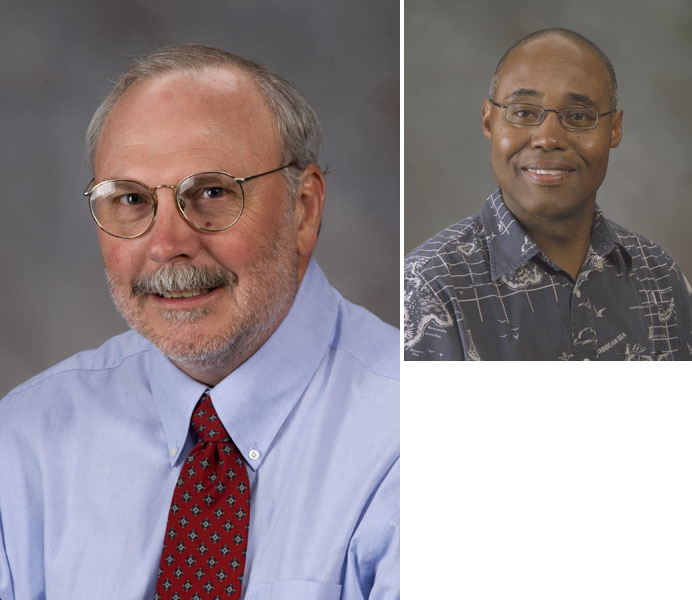University awarded scholarship program to support non-traditional graduate students

The National Science Foundation (NSF) has awarded Virginia Tech $506,373 for a five-year program "Broadening Opportunities for Nontraditional Graduate Students in Biomolecular Science."
The growth in biotechnology and its impact on agriculture has created a need for a highly trained workforce of graduate-level scientists. The Scholarships in Science, Technology, Engineering, and Mathematics (S-STEM) program at Virginia Tech will address the need by enhancing the stipends of students recruited by the entomology and biochemistry departments in the College of Agriculture and Life Sciences. In all, 44 scholarships of $10,000 each will be provided.
"The aim is to give nontraditional students opportunities for graduate education in an emerging field," said principal investigator Dennis Dean, who is director of the Fralin Life Science Institute at Virginia Tech. "The ability to increase the stipends offered by the recruiting departments means we can attract the best students and place them in labs where they will benefit."
Carlyle Brewster, associate professor of entomology, who is directing the S-STEM program, described 'nontraditional' students as, "individuals who differ from traditional students because they are older; have different backgrounds, such as ethnicity, military service, or socioeconomic status; or have risk factors that can reduce retention, such as being a single parent or having other dependents."
Students are being recruited through existing programs in the Virginia Tech Graduate School, College of Agriculture and Life Sciences, Multicultural Academic Opportunities Program, and elsewhere. Fralin will also invite applications during the institute's recruitment weekend Oct. 17.
The scholars, who will be degree students in entomology or biochemistry, will be mentored by faculty members in those departments, many of whom were hired as part of Virginia Tech's biotechnology initiative. "But that doesn't mean they work only in those departments. Fralin offers interdisciplinary experiences," said Brewster.
In addition to scholarships and academic training, the S-STEM scholars have internships at two agricultural biotechnology companies, Novozymes Biological and Dow AgroSciences.
The biomolecular science award is Virginia Tech's third S-STEM grant. The others are "Preparing Economically Challenged (undergraduate) Students for Careers in Biotechnology", headed by Jill Sible, professor of biological science, and "Increasing Diversity through Engineering Academic Scholarships (IDEAS)," headed by Bevlee Watford, professor of engineering education, associate dean for academic affairs in the College of Engineering, and director of the Center for the Enhancement of Engineering Diversity.
IDEAS (http://www.nsf.gov/awardsearch/showAward.do?AwardNumber=0806842) provides scholarships and academic support for first year students; specifically African American, Hispanic, and Native American freshman and transfer students of all ethnicities.
"We coordinated with Drs. Sible and Watford to use existing knowledge and leverage others' outreach," said Dean.
Fralin S-STEM scholars will mentor the biotechnology S-STEM students. "Our connection with the undergraduate S-STEM program in biotechnology was one of the things that the NSF reviewers liked," Brewster said.
In addition to Dean and Brewster, co-principal investigators are Ann McNabb, professor of biological science and associate dean of the Virginia Tech Graduate School; and Donna Cassell Ratcliffe, director of Virginia Tech Career Services. "The Biomolecular Science S-STEM is a collaborative effort of Fralin, the Graduate School, Career Services, and the Virginia Tech Office of Academic Assessment," Brewster said.
Members of the planning and advisory committee are Sible; David Bevan, professor of biochemistry and chair of the interdisciplinary Ph.D. program in genetics, bioinformatics, and computational biology; and two department of entomology graduates, Jarrod Leland, senior research scientist at Novozymes; and Marc Fisher, product technologist at Dow.



.jpg.transform/m-medium/image.jpg)
